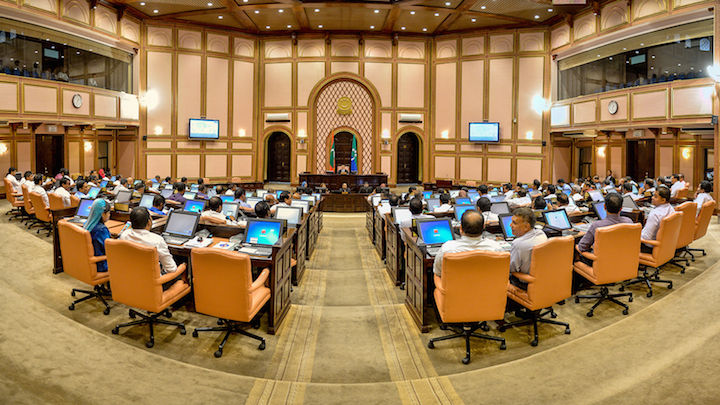Parliament to consider mandatory Shariah punishments

18 Aug 2015, 09:00
An amendment to make Islamic Shariah punishments mandatory in the new penal code was accepted for consideration at the People’s Majlis today.
Progressive Party of Maldives (PPM) MP Ahmed Thoriq had proposed amending section 1205 of the law, which deals with hudud or offences for which punishments are prescribed in the Quran. The penal code came into force on July 16.
“If an offender is found guilty of committing an offence to the extent of practical certainty as per the standard of proof established in Islamic Shariah, for which punishments are predetermined in the Holy Quran, that person shall be punished by the judge in accordance with this code,” reads section 1205.
The ruling party MP has proposed replacing ‘Holy Quran’ with ‘Islamic Shariah.’ The Shariah encompasses both the Quran and the Prophet’s sunnah (teachings or traditions).
Become a member
Get full access to our archive and personalise your experience.
Already a member?
Discussion
No comments yet. Be the first to share your thoughts!
No comments yet. Be the first to join the conversation!
Join the Conversation
Sign in to share your thoughts under an alias and take part in the discussion. Independent journalism thrives on open, respectful debate — your voice matters.




